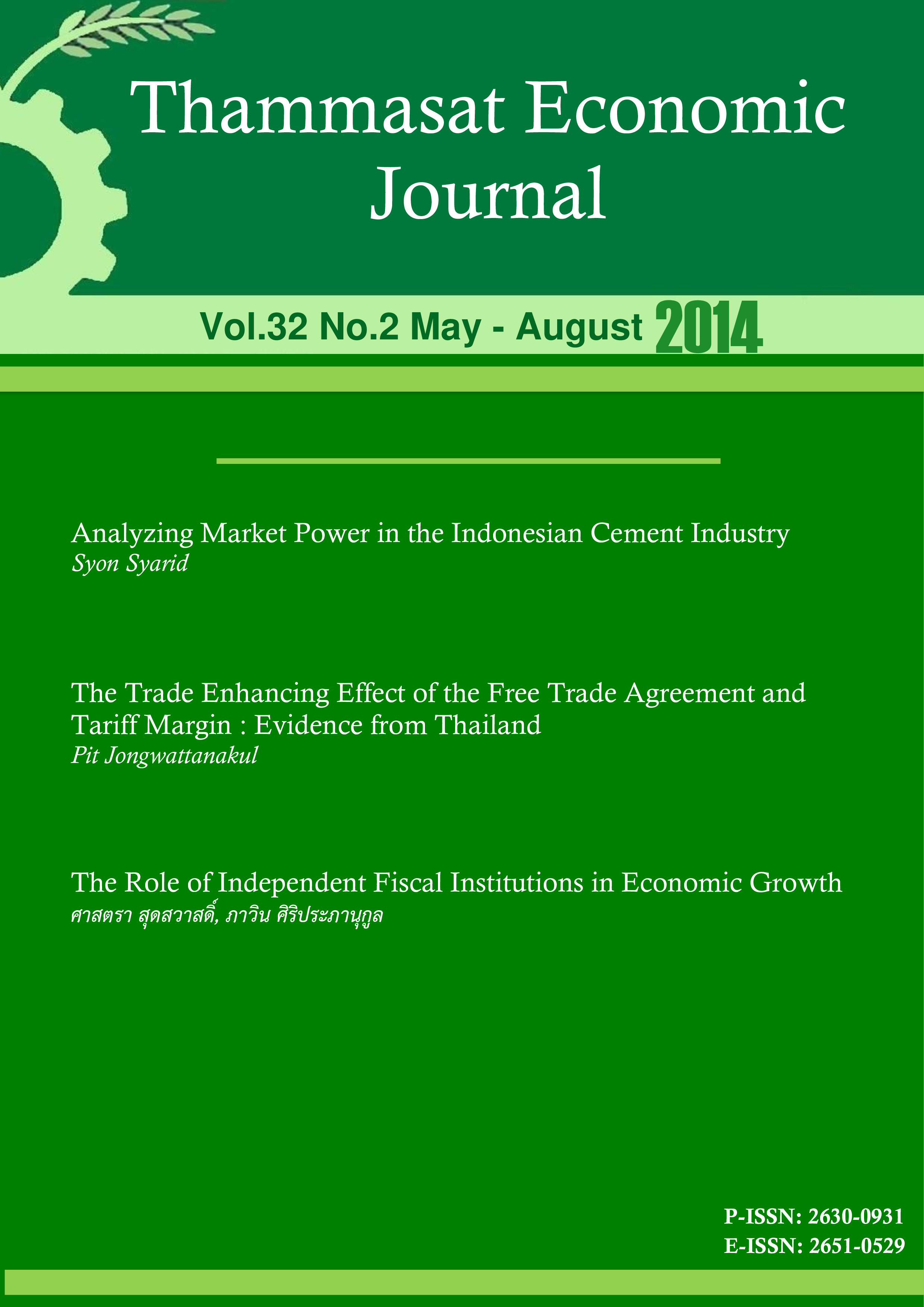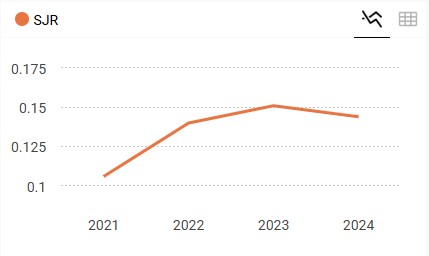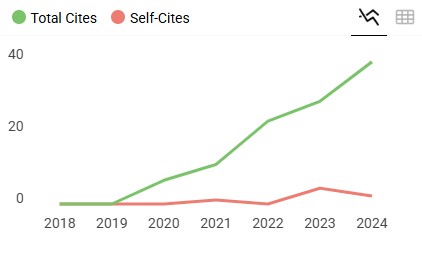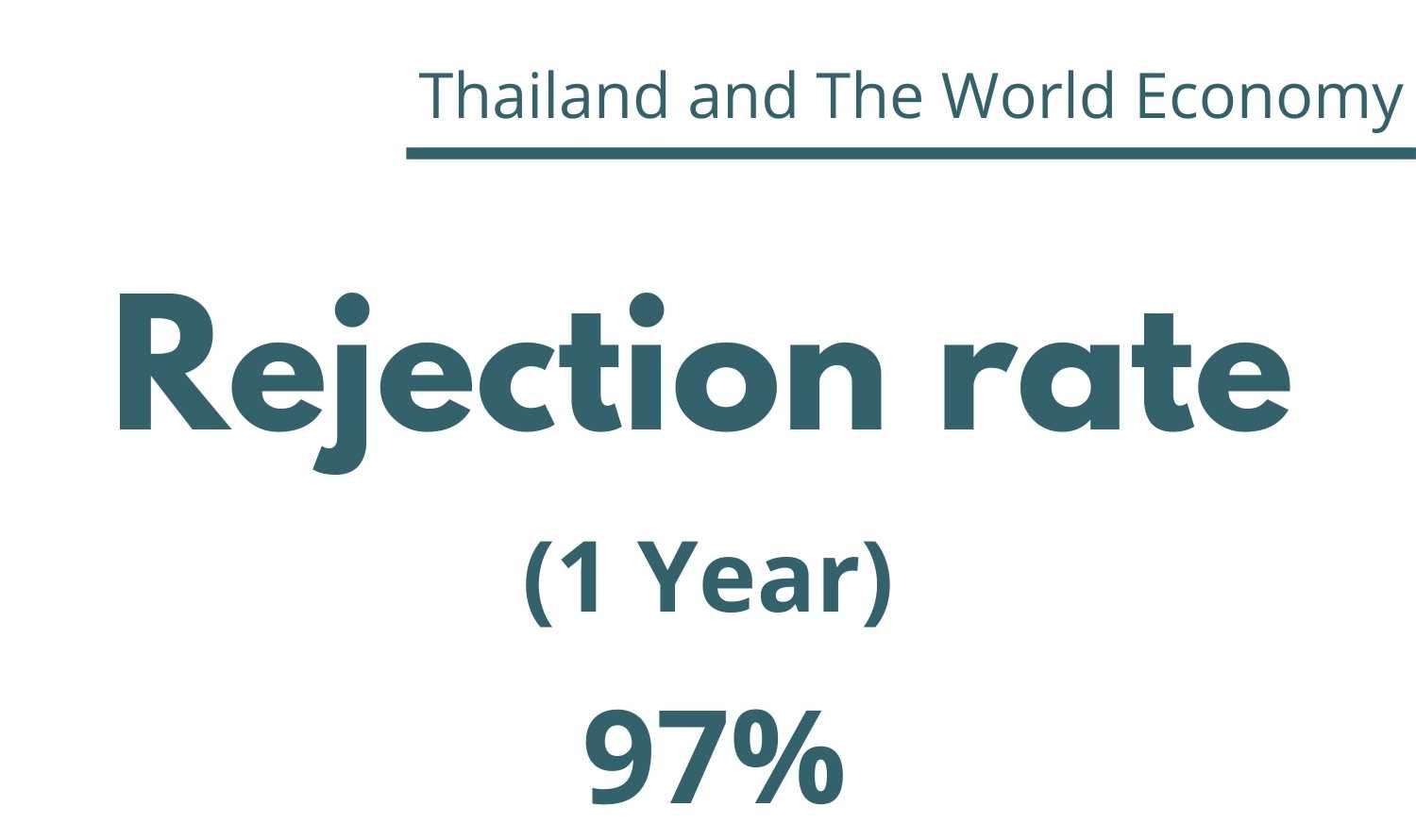The Role of Independent Fiscal Institutions in Economic Growth
Keywords:
Independent fiscal institutions, fiscal policy, growthAbstract
This study examines the impact of independent fiscal institutions on economic growth, by extending the framework that links budgetary positions to growth of an economy. The empirical finding indicates that the establishment of independent fiscal institution without considering its functions do not have a direct impact on growth. However, if the established independent fiscal institution leads to a reduction of the budget deficit, growth can be indirectly promoted. In addition, independent fiscal institutions with the function of policy costing can increase the effectiveness of productive government expenditure, which, in turns, enhances growth.
References
2.Alesina, A. and R. Perotti. 1995. “Fiscal Expansion and Fiscal Adjustments in OECD countries,” Economic Policy, 10(21), pp. 205 – 248.
3.Alesina, A. and G.Tabellini. 1990. “A Positive Theory of Fiscal Deficits and Government Debt,” Review of Economic Studies, Vol. 57, pp. 403-414.
4.Alesina, A., G., Tabellini, and F.R.,Campante. 2008. “Why is Fiscal Policy often Procyclical?” Journal of the European Economic Association, Vol. 6, pp. 1006-1036.
5.Barro, R.J. 1990. “Government Spending in a Simple Model of Endogenous Growth,” Journal of Political Economy, Vol. 98, pp. S103-125.
6.Bose, N., M.E., Haque, and D.R.,Osborn. 2003. “Public Expenditure and Economic Growth: A Disaggregated Analysis for Developing Countries,” Working Paper, Center for Growth and Business Cycle Research, University of Manchester, UK.
7.Debrun, X., L., Moulin, A., Turrini, J., Ayuso-i-Casals, and, M.S., Kumar.2008. “National Fiscal Rules,” Economic Policy, pp. 297-362.
8.European Central Bank. 2013. Monthly Bulletin. February 2013.
9.Gupta, S., B., Clements, E., Baldacci, and C., Mulas-Granados. 2005. “Fiscal Policy, Expenditure Composition and Growth in Low-Income Countries,” Journal of International Money and Finance, Vol. 24, pp. 441 – 463.
10.Hagemann, R. 2011. “How can Fiscal Councils strengthen Fiscal Performance?” OECD Journal: Economic Studies, Vol. 2011/1, pp. 75-98.
11.Ilzetzki, E., E.G. Mendoza, and C.A., Vegh. 2010. “How Big (small) are Fiscal Multipliers?” NBER Working Paper No. 16479, National Bureau of Economic Research.
12.International Monetary Fund. 2013a. “The Functions and Impact of Fiscal Councils,” IMF Policy Paper, (Washington, DC: International Monetary Fund.)
13.International Monetary Fund. 2013b. “Fiscal Adjustment in an Uncertain World,” IMF Fiscal Monitor, April, (Washington, DC: International Monetary Fund.)
14.Kneller, R., M.F., Bleaney, and N., Gemmell. 1999. “Fiscal Policy and Growth: Evidence from OECD Countries,” Journal of Public Economics, Vol. 74, pp. 171-190.
15.Perotti, R. 1999. “Fiscal Policy in Good Times and Bad,” Quarterly Journal of Economics, Vol. 114, pp. 1399-1436.
16.Persson, T. and L., Svensson. 1989. “Why a Stubborn Conservative would run a Deficit: Policy with Time Inconsistent Preferences,” Quarterly journal of Economics, Vol. 104, pp. 325-346.
17.Reinhart, C. and K., Rogoff. 2009.This Time is Different: Eight Centuries of Financial Folly, Princeton, N.J., Princeton Press.
18.Sudsawasd, S. and P., Puapan. 2014, “Fiscal Policy in Response to Climate Variability in Thailand,” Southeast Asian Journal of Economics, Vol. 2, pp.183-218.
19.Weingast, B., K., Shepsle, and C., Johnson. 1981. “The Political Economy of Benefits and Costs: A Neoclassical Approach to Distributive politics,” Journal of Political Economy, Vol. 89, pp. 642-664.










